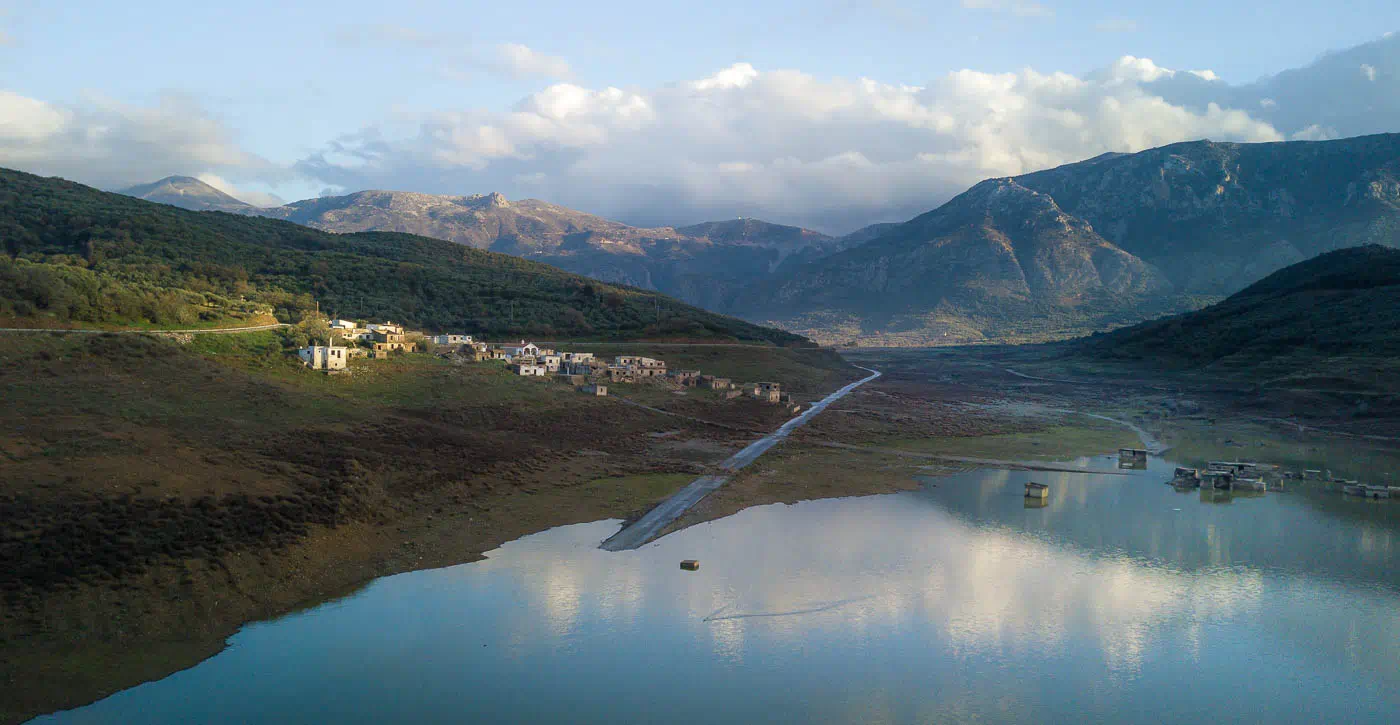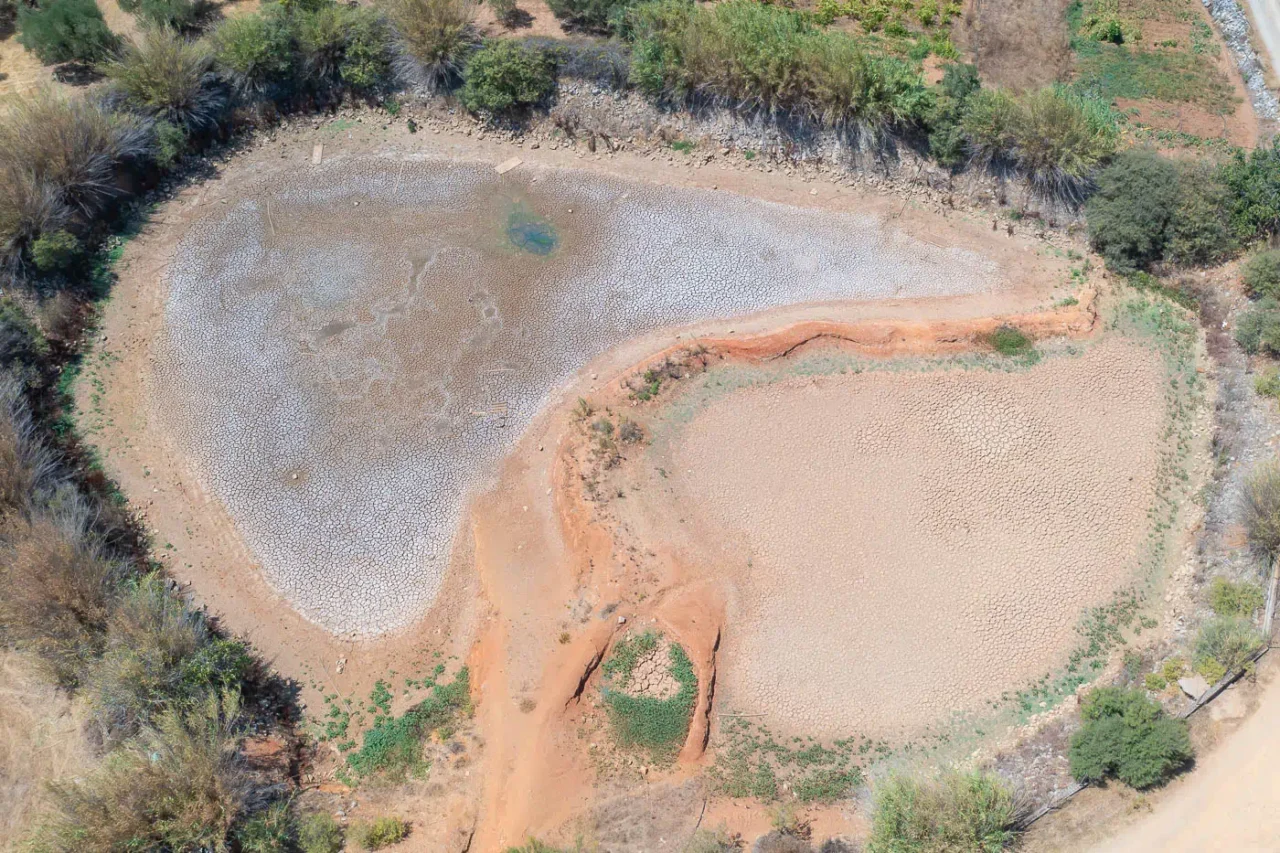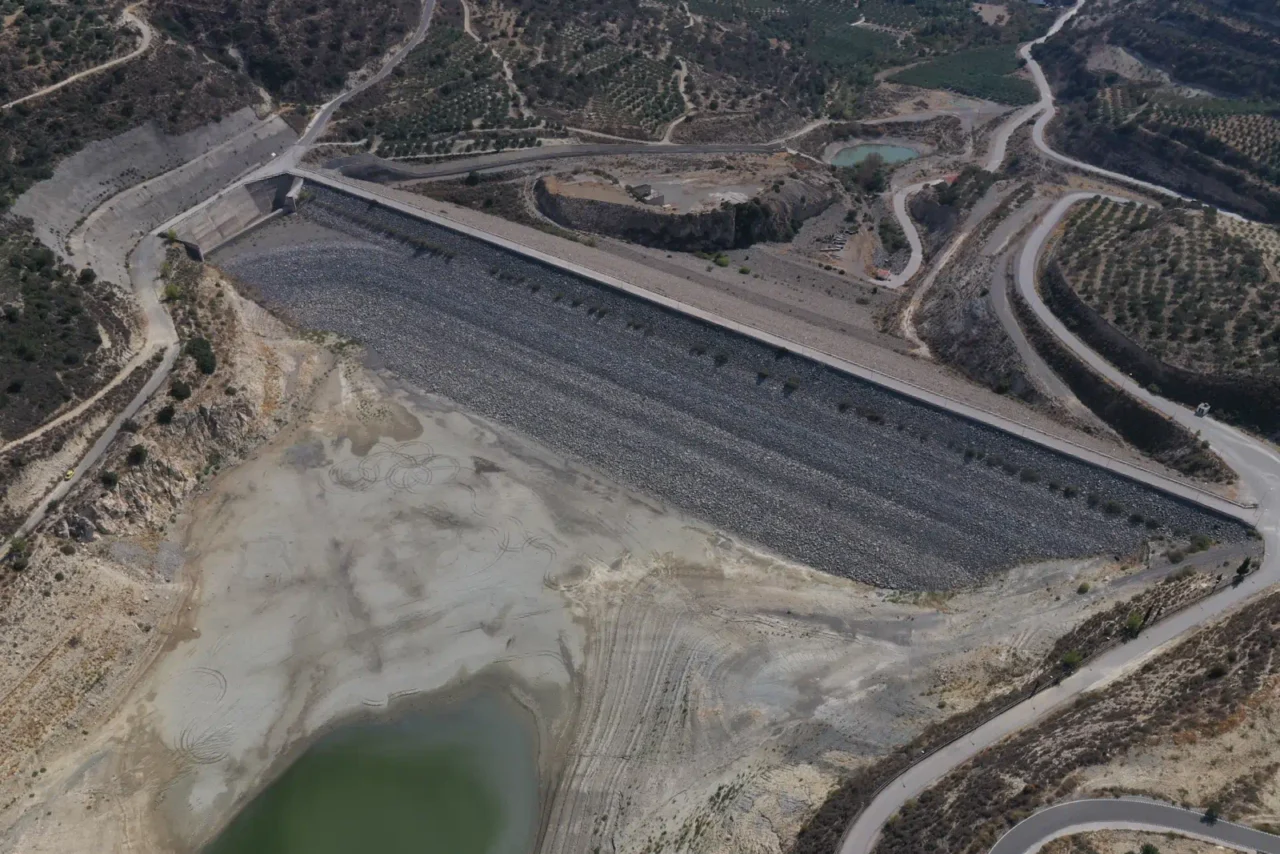
Crete, the largest and most populous of the Greek islands, is facing a growing water crisis. This challenge, driven by a combination of climate change, unsustainable tourism practices, and outdated infrastructure, threatens the island’s environment, economy, and cultural heritage.
The Scope of the Problem: A Looming Water Crisis in Crete
Crete’s water scarcity is a complex and multifaceted issue, with the eastern regions of the island facing the most severe challenges. While the Aposelemis Dam’s depletion is a significant concern, it is not the only indicator of the island’s growing water stress. Other critical water sources, including the Faneromeni Dam and several smaller reservoirs, are also experiencing declining water levels. This widespread depletion of water resources raises serious concerns about the long-term availability of water for basic needs, agriculture, and the tourism industry, which is a cornerstone of Crete’s economy.
The island’s vulnerability to drought is not a new phenomenon. In 2018, Crete experienced severe water shortages, leading to widespread restrictions and cuts. These measures disrupted daily life, impacted economic activities, and highlighted the urgent need for sustainable water management practices. The situation is further exacerbated by climate change, which is expected to increase the frequency and intensity of droughts in the Mediterranean region.
The declining water levels in Crete’s dams and reservoirs are a clear indication of the imbalance between water supply and demand. The island’s growing population, coupled with the increasing demands of the tourism industry, has placed immense pressure on water resources. This situation is unsustainable and requires immediate action to mitigate the long-term consequences of water scarcity.
Tourism’s Role in the Crisis
While tourism is a cornerstone of Crete’s economy, the island’s infrastructure is struggling to keep pace with the ever-increasing demand for water. The average tourist consumes significantly more water than a local resident, and the island’s population effectively triples during the peak season. This surge in demand places immense pressure on water resources, leading to substantial deficits, particularly in areas with a high concentration of hotels and resorts.
The Proliferation of Pools: A Symbol of Unsustainable Practices
One of the most visible manifestations of Crete’s water crisis is the proliferation of swimming pools. While a private pool may seem like a standard amenity for a luxury vacation, in the context of Crete’s water scarcity, it represents a stark disconnect between the demands of tourism and the island’s environmental constraints.
The construction of pools, often unregulated and exceeding permitted limits, is depleting precious water resources. The pursuit of profit and the demand for high-end accommodations have fueled a construction boom, with villas and hotels boasting multiple pools. These pools, while visually appealing, stand in stark contrast to traditional Cretan architecture and the island’s historical practices of careful water management. They symbolize a shift towards a model of tourism that prioritizes luxury and excess over sustainability and environmental responsibility.


The Environmental Cost of Unsustainable Tourism
The increased demand for water also leads to over-extraction from underground aquifers, resulting in saltwater intrusion and further compromising the quality of freshwater resources.
This environmental degradation not only threatens Crete’s delicate ecosystems but also undermines its cultural heritage. The traditional Cretan way of life has always been closely intertwined with the careful management of water resources. The unchecked expansion of tourism and the construction of pools are eroding this cultural heritage, replacing it with a model of unsustainable consumption that prioritizes short-term economic gains over long-term environmental and cultural preservation.
The Urgent Need for Sustainable Practices
Addressing Crete’s water crisis requires a concerted effort from all stakeholders, including local authorities, developers, and tourists. Local authorities must strengthen regulations and enforcement to curb illegal construction and promote water conservation practices. Developers need to prioritize sustainable building practices, incorporating water-saving technologies and utilizing alternative water sources like rainwater harvesting.
Tourists also have a crucial role to play. By choosing accommodations that prioritize water conservation and by being mindful of their water usage during their stay, tourists can contribute to mitigating the crisis. Supporting local businesses committed to sustainability and respecting the cultural and environmental sensitivities of the island are equally important steps.
Redefining Luxury in the Context of Sustainability
The concept of luxury in the context of Crete needs to be redefined. True luxury lies not in excessive consumption and private pools but in experiencing the authentic beauty and cultural heritage of this unique destination. It lies in appreciating the pristine environment, supporting local communities, and contributing to the long-term sustainability of this fragile ecosystem.
By choosing to travel responsibly and making conscious decisions, tourists can play a crucial role in protecting Crete, ensuring that its beauty and cultural heritage endure for generations to come.
Crete’s Water Crisis: A Call to Action
Crete’s water crisis is a complex issue with no easy solutions. It requires a multifaceted approach that involves sustainable tourism practices, responsible water management, and a shift in mindset towards prioritizing long-term sustainability over short-term gains.
The choices we make today will determine the future of Crete. By embracing sustainable practices and redefining our understanding of luxury, we can help ensure that this beautiful island remains a vibrant and thriving destination for generations to come.

